Empowering our students with knowledge and skills to make a positive impact, through applying creativity to global issues.
What's covered?
We are using our own bespoke tool to detect and aid embedding sustainability into our courses, equipping our students with relevant knowledge and skills to make a difference during their studies and, most importantly, after they graduate.
We will strive to deliver our learning and teaching activities to minimise our negative environmental impact. Beyond the curriculum, we are offering sustainability-focused initiatives, events and campaigns to educate, inspire and empower our community.
Why?
The role of a university is to understand humanity’s problems, challenge norms and address societal challenges. We have a responsibility to help create a sustainable future, and our students recognise this. 79% agree that we should be developing their social and environmental skills as part of their course (Sustainability Skills Survey, SOS-UK, 2022).
Creativity is inherently regenerative, providing fresh ideas and new, innovative solutions. Creativity is a vital tool for addressing current sustainability challenges and catalysing positive change. With authentic, relevant education for sustainability, our students can go on to lead innovation, enhance communication and become empowered global citizens.

Our targets
Goal 1
We will develop and adopt new guidance for our curriculum design process that will support the delivery of learning and teaching that has minimum carbon impact.
Goal 2
We will embed Sustainability Learning Outcomes in every course across our undergraduate and postgraduate portfolio, both on campus and online.
Goal 3
We will roll out a programme of staff development training to support the ongoing, current and industry-connected delivery of an environmentally conscious curriculum.
Goal 4
We will provide innovative, collaborative extra-curricular initiatives for students, staff and our local community to explore sustainability issues, widen their knowledge and embrace opportunities for climate advocacy.
How we're going to do it
Evaluate our entire curricula using our Falmouth Curriculum Ladder for Sustainability tool & approach (FCL-S)
We will determine the breadth and depth of sustainability content embedded across our curricula, and work to integrate at least three of our nine key sustainability themes within each of our courses.
Evaluate our students’ sustainability literacy
We will evaluate student "learning gains" at a course level, in sustainability awareness, knowledge and skill acquisition using sector guidance.
Implement assessments and projects related to education for sustainability
We will grow the number of sustainability-focused projects, briefs and assessments delivered by our courses, encouraging partnerships with local organisations and industry.
Audit and improve the circularity of our faculties’ activities
We will adopt an audit and improvement approach to action planning within and across departments to ensure circularity is embedded into our academic infrastructure.
Educate, inspire and empower our community
We will continue to design and deliver a variety of extra-curricular initiatives that help our community identify opportunities for creating individual and collective positive impacts, whilst reducing negative ones.
What we've done so far
Collaboratively evaluated 65% of our curricula for sustainability content: Using our FCL-S tool and approach, we have generating a baseline understanding of the breadth and depth of sustainability content within 65% of our courses (as of October 2024). Within these, we have identified a total of 1,756 individual references to core sustainability themes, and determined which of them have sustainability-focused learning outcomes and modules.
Advised and co-created new sustainability content: Our Sustainability Team have consulted with academics to help them understand key sustainability principles, how they’re relevant to different subject areas, and provide resources to empower them to increase the amount of sustainability content in their courses. We have also co-created and delivered a variety of guest lectures and workshops, to catalyse this process.
Integrated sustainability into our course validation process: We have made sustainability a mandatory consideration for course teams in our institutional course validation and course revalidation processes. To support them through this, we have designed a number of complementary, tailored sustainability resources like learning outcomes, common assessment criteria, and module structures.
Delivered impactful sustainability initiatives: Each year we have delivered a wide range of sustainability-focused extra-curricular initiatives for our students, staff and local community. These include our ‘Swap Shop’ resource redistribution campaign (recognised as sector-leading in the 2024 UK & Ireland Green Gown Awards) and campus conservation volunteering sessions.
Established an eco-anxiety support network: In collaboration with ‘Force of Nature’ CIC, we set up ‘Breathing Space’, an initiative seeking to create space for our community to understand their climate emotions, connect with likeminded people, and learn how they can use these feelings to define and take meaningful action.
Falmouth's unique methodology has received external recognition: In 2023, we were announced as a Finalist in the 'Tomorrow's Employees' category of the UK & Ireland Green Gown Awards, recognising the relevance of our FCL-S approach to ensuring a transition to a sustainable economy through equipping students with necessary knowledge, skills and behaviours.
In 2021, our FCL-S approach was listed as a case study in the 'Mainstreaming Climate Change Education in UK Higher Education Institutions' briefing paper, pulled together by the 'UK Universities Climate Network' (formerly the 'COP26 Universities Network'). Our case study will assist other universities in considering how best to embed sustainability across their courses.

"We have adopted the FCL-S into our quality and standards processes, thereby driving a broader, deeper understanding of sustainability issues and themes. This means students leaving Falmouth gain better understanding of the importance of sustainability within their disciplines as well as aiding them more holistically as global citizens."
- Professor Russell Crawford, Strategic Lead for our Learning & Teaching sustainability theme
Our sustainability-focused courses
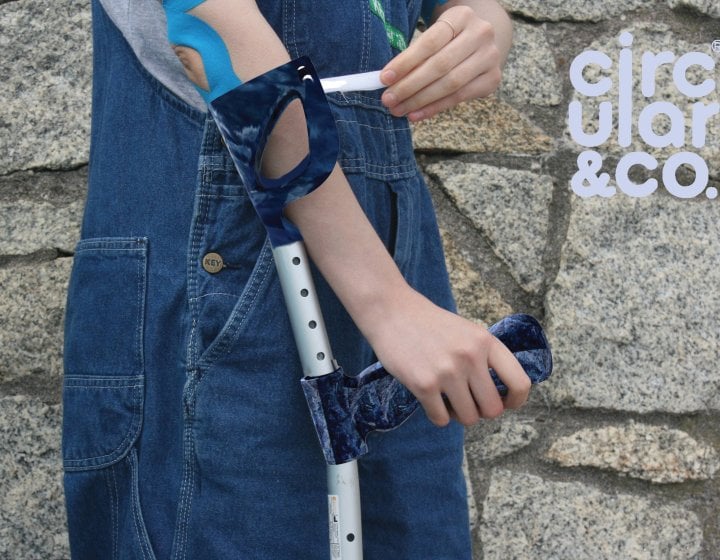
Designed by Florence Mitchell
Sustainable Product Design BA(Hons)
Become a conscientious and innovative product designer with the professional practice skills to make...
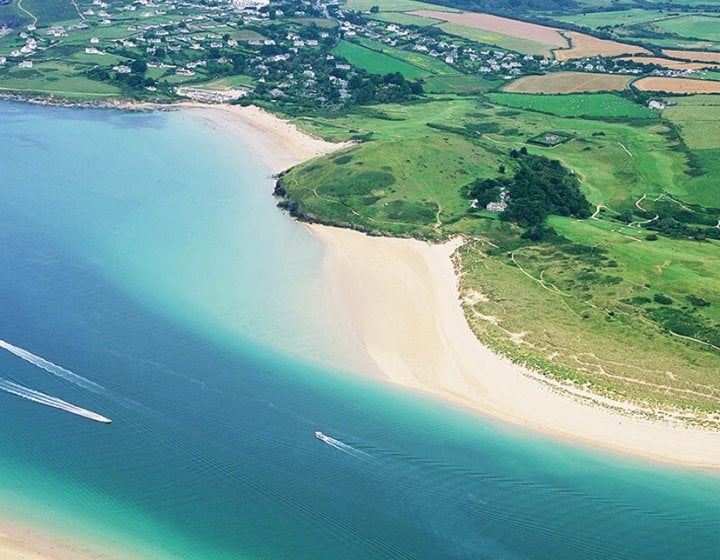
Sustainable Tourism Management BA(Hons)
Shape the tourist landscape of tomorrow on this innovative degree designed in partnership with the E...

Sustainable Festival Management BA(Hons)
Working at the forefront of inclusivity, accessibility and sustainability, you‘ll gain the skills,...
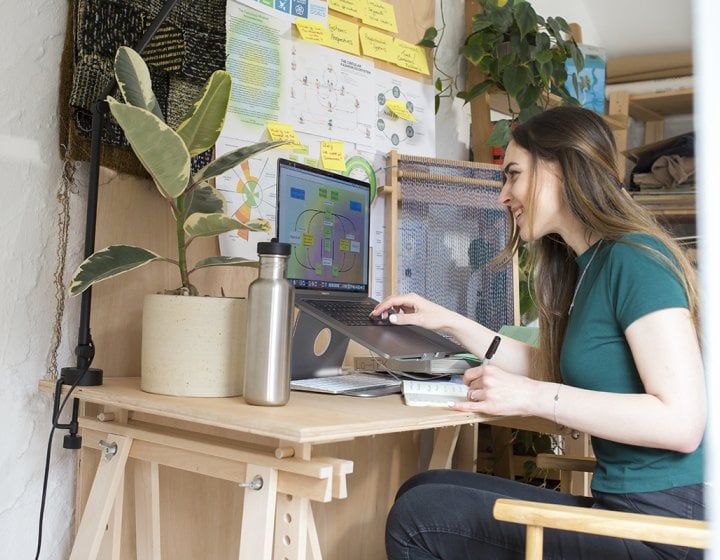
Sustainable Fashion MA (Online)
Become a conscious changemaker in the 21st century fashion industry. Develop a radical and circular ...
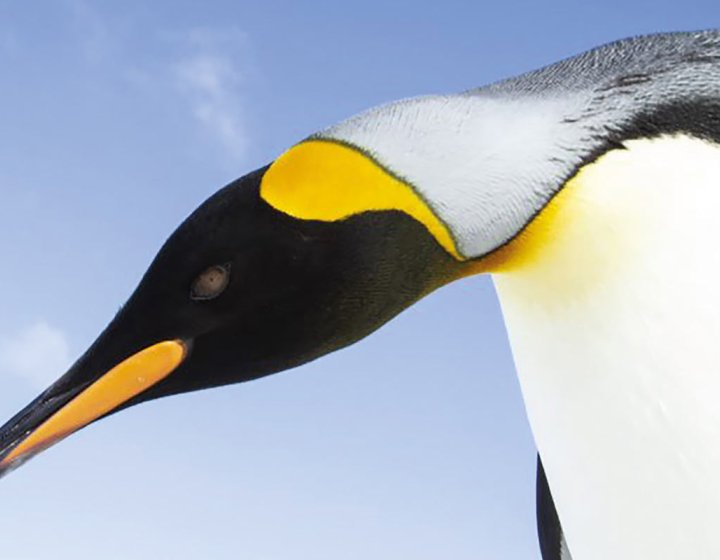
Marine & Natural History Photography BA(Hons)
Harness your passion for photography and filmmaking to inspire audiences about nature and the enviro...
Explore our sustainability themes
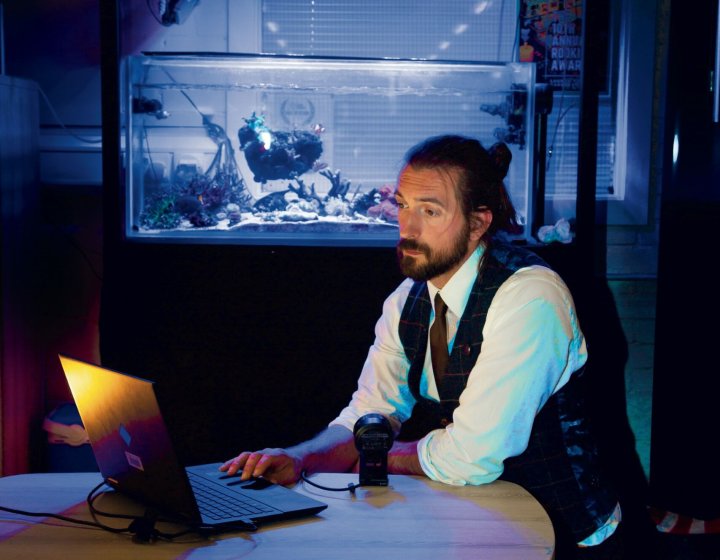
Sustainability | Research & Knowledge Exchange
We are committed to upholding sustainable research practices, undertaking sustainability-related res...
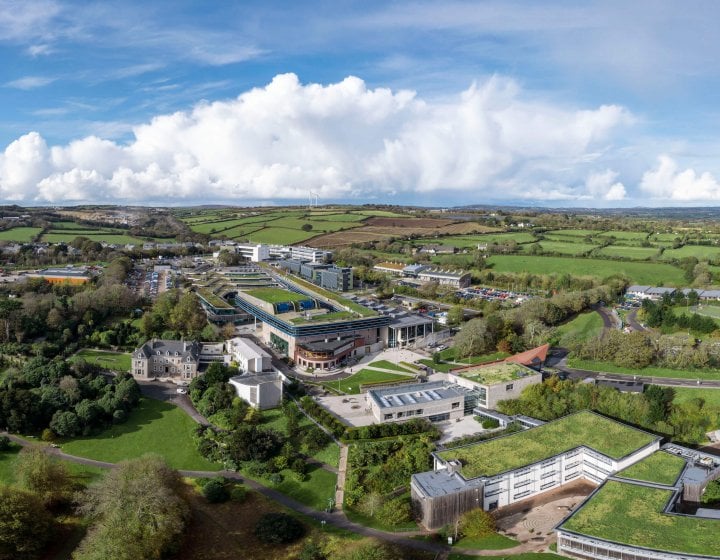
Physical Estate & Operations
Streamlining our operations and enhancing our environment.
News & stories

Wild Voices: The "sound of extinction" by Tom Hull
12 August 2022
This piece was written by Tom Hull, a researcher at Falmouth University. He is a specialist in wild ...

Changing fashion for the better: In conversation with lecturer Tom Crisp
11 May 2022
Tom Crisp is a menswear designer, trend analyst and fashion lecturer, and has just been appointed as...
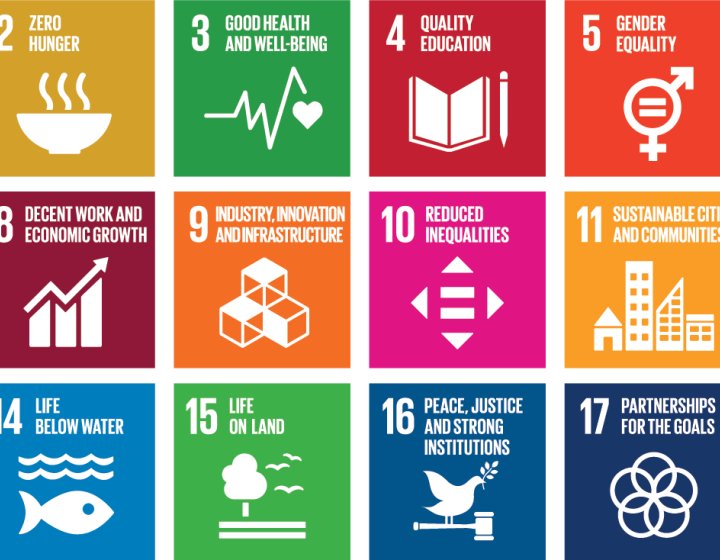
Falmouth ranked as Top 10 Institution by 2022 SDG Teach In
06 May 2022
For the second year in a row, Falmouth University's engagement with the Sustainable Development...

Falmouth joins the Fashion Declares movement
04 February 2022
Falmouth’s Fashion & Textiles Institute has joined forces with key leaders across the fashion ...

Falmouth University at COP26
12 November 2021
Staff members have taken to Glasgow to learn how to combat the most pressing issue facing society to...

CEO delivers live brief to students with enticing prize on offer
14 October 2021
Second year BA Creative Advertising students have been set an industry brief by John Brown, CEO of b...

Student reaches final of international design award
25 March 2021
Third-year Sportswear Design student Matilda Shields reached the finals of the 2020 Woolmark Company...

Living and working sustainably at Falmouth
26 February 2021
Textile Design graduate Jane Gray’s sustainable artwork has been showcased by the Craft Council’...

